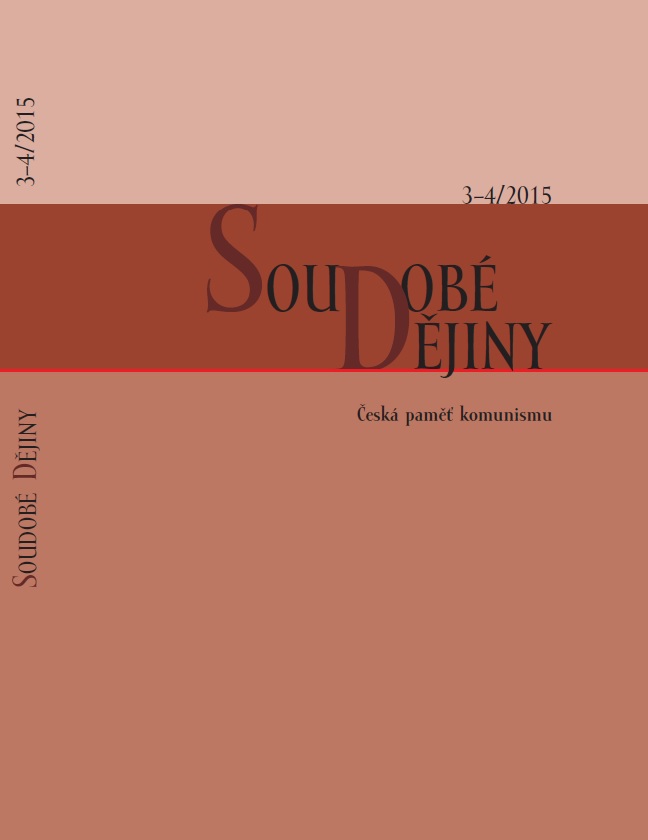Historie ve službách příběhu
History in the Service of the Story
Thoughts on Igor Lukeš’s On the Edge of the Cold War
Author(s): Petr MarešSubject(s): Book-Review
Published by: AV ČR - Akademie věd České republiky - Ústav pro soudobé dějiny
Keywords: review;critical analysis
Summary/Abstract: Lukeš, Igor. Československo nad propastí: Selhání amerických diplomatů a tajných služeb v Praze 1945–1948. Trans. from the English by Jan Jirák and Ladislav Köppl. Prague: Prostor, 2014, 383 pp., ISBN 978-80-7260-292-6. The book under review is a Czech translation of Igor Lukeš’s On the Edge of the Cold War: American Diplomats and Spies in Postwar Prague (New York and Oxford: Oxford University Press, 2012), whose Czech title translates as ‘Czechoslovakia on the edge of the abyss: The failure of US diplomats and secret services in Prague, 1945–48’. The first of the three reviews, published here as part of the section ‘Three Readings of One Book’, is conceived on the broader plan of an analysis of US-Czechoslovak relations in the years immediately after the Second World War. The book, according to the reviewer, is the result of extensive research in all of the important American and Czech archives. Moreover, it is to the author’s great credit that he conducted numerous interviews with people involved in the described events and has made use of the unpublished manuscripts they provided him with. He offers a highly attractive, indeed gripping, account, thanks to which the reader gets a very good idea of what it was that led to the Communist takeover in late February 1948. But this picture is neither complete nor balanced. In this work about the failure of US diplomats and the US secret services in Prague, its greatest strength, according to the reviewer, is, somewhat paradoxically, the revealing passages about the activities of the Czechoslovak intelligence services against the US Embassy and its representatives in Czechoslovakia. What is problematic, however, is the interpretations based on insuffi cient sources, factual imprecision, and careless interpretation or even intentional shifts, which the reviewer exposes by analysing the withdrawal of the US Army from Czechoslovakia, the role of Czechoslovakia in post-war US policy, and the character of the US Ambassador to Czechoslovakia, Laurence A. Steinhardt (1892–1950). Lukeš, according to the reviewer, too readily accepts the idea that Czechoslovakia was of great importance as an American ‘testing ground’ to determine the possibilities of maintaining friendly relations with the Soviet Union, while he fails to take into account essential shifts in developments. Above all, however, he presents a contrived portrait of Steinhardt as an originally capable and responsible diplomat who, in consequence of professional failures in his Prague mission, ceased to take an interest in Prague events, paying more attention to his private affairs than his ambassadorial duties.
Journal: Soudobé Dějiny
- Issue Year: XXII/2015
- Issue No: 3-4
- Page Range: 504-523
- Page Count: 20
- Language: Czech

